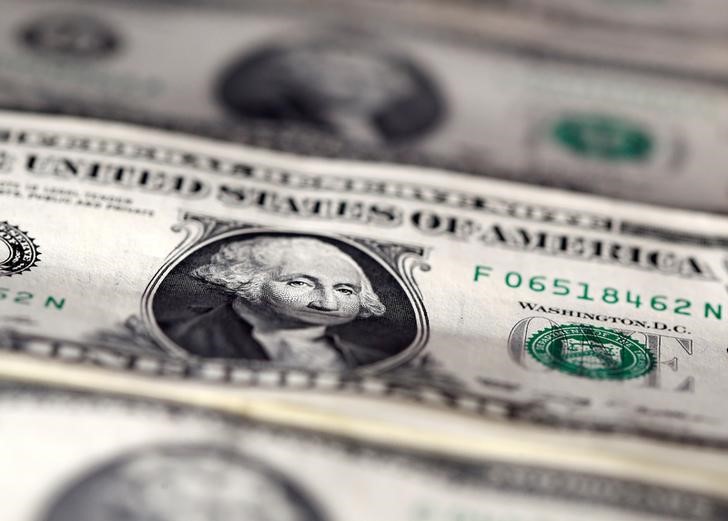By Dion Rabouin
NEW YORK (Reuters) - The dollar fell to its lowest since November against a basket of currencies on Monday as investors lost confidence in prospects for a U.S. fiscal spending boost under President Donald Trump after his failure to pass a major healthcare reform bill.
Trump's inability to deliver on his campaign pledge to overhaul the nation's healthcare system marked a big setback for a Republican president whose own party controls Congress, and raised doubts over whether he will be able to see through tax reforms and a proposed spike in spending.
The dollar recovered broadly during North American trading, but remained down 0.45 percent on the day against the basket of currencies used to measure its broader strength (DXY). It earlier fell as low as 98.858, the lowest since Nov. 11.
"The assumption was that if you can’t get healthcare done that some of the other things on his agenda, mainly the tax reform, would be a harder sell," said John Doyle, director of markets at Tempus Inc in Washington.
The dollar index had risen to a 14-year high near 104.00 in early January when expectations for inflation-boosting stimulus under the Trump presidency were at their peak, with investors betting on the so-called "Trumpflation" trade.
For the third week in a row, speculators increased bullish bets on the U.S. dollar in the week up to last Tuesday, pushing net long bets to their highest since Jan. 31, Commodity Futures Trading Commission data showed on Friday. [IMM/FX]
Against the Japanese yen <JPY=>, the dollar fell to its weakest since Nov. 18 and hit its lowest against the Swiss franc, another traditional safe haven, since Nov. 9.
The euro <EUR=EBS> reached $1.0904, its highest since Nov. 11. Sterling, the worst performer among the Group of 10 major currencies against the dollar this year, hit an 8-week high of $1.2615
"The British pound is still close to its weakest level in 30 years, so it has some upside especially since data out of the UK has been better," Doyle said. "The Japanese yen has had a great run because stocks around the globe are down. So if you start breaking it down into each individual currency there's a good reason, but overall it's just a dollar negative day."

The dollar rose more than 3 percent against the South African rand <ZAR=> after the country's Finance Minister Pravin Gordhan was asked by President Jacob Zuma to return early from an investor roadshow abroad, prompting worries of a looming cabinet reshuffle.